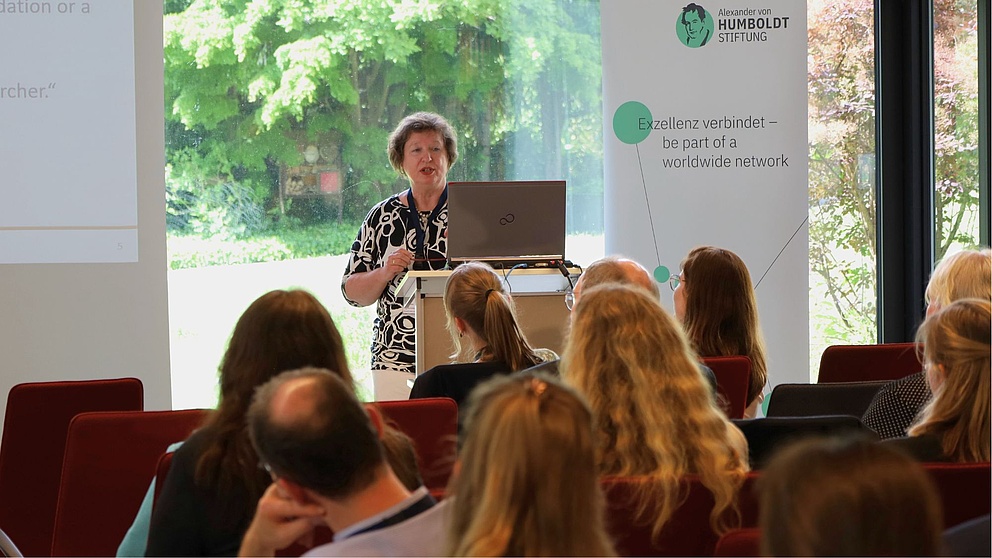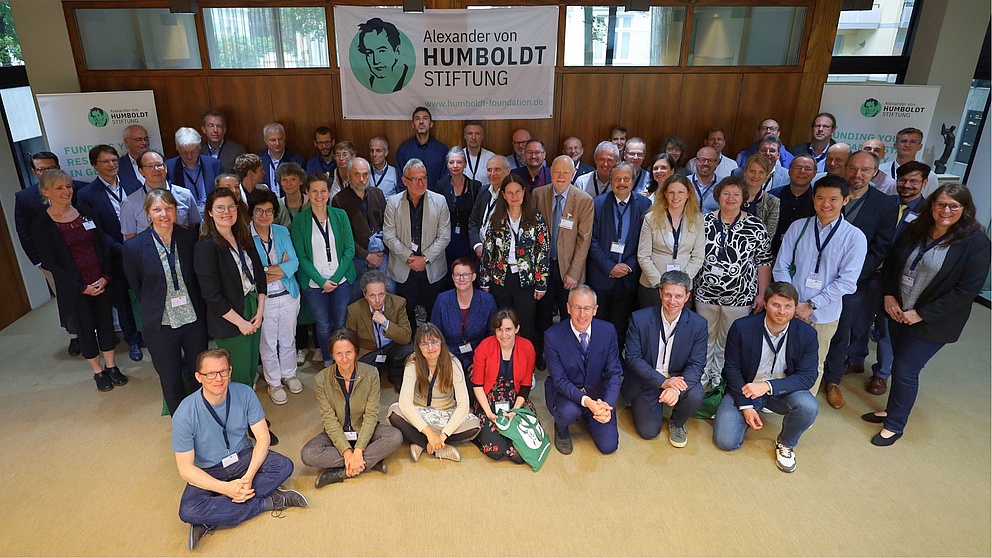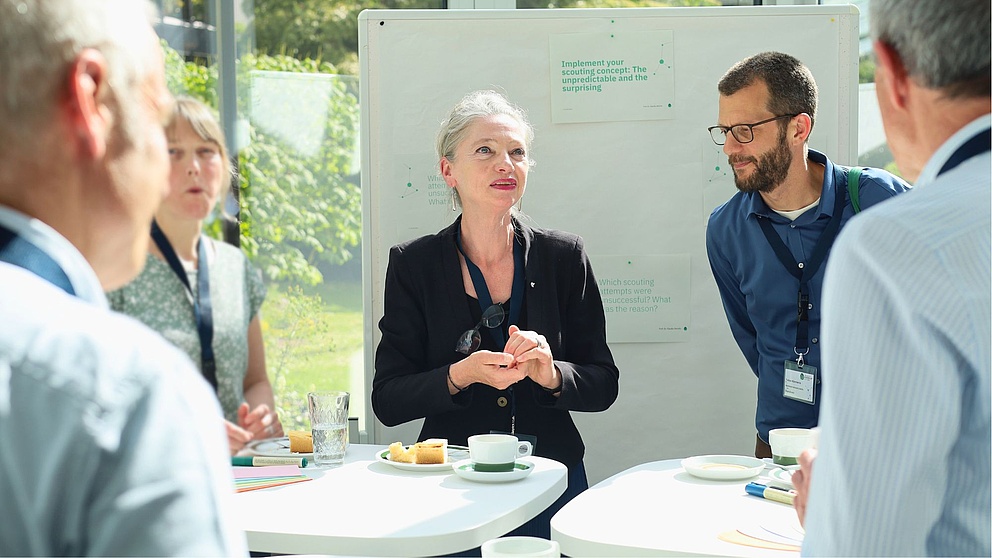
Contact
Press, Communications and Marketing
Tel.: +49 228 833-144
Fax: +49 228 833-441
presse[at]avh.de
In addition to members of the selection committee for the Henriette Herz Scouting Programme, the participants were all hosts in the Humboldt Network who have been selected as scouts since the Humboldt Foundation's programme was launched in 2020. In this role they have the opportunity to address up to three talented junior researchers and recommend them for a Humboldt Research Fellowship directly. The target group comprises promising junior researchers who for various reasons would not have applied for a Humboldt Research Fellowship of their own accord. The first person the scouts recommend should be a female researcher.
“This requirement certainly poses different challenges in the different research fields in which you work. Parity has almost been achieved in some, also internationally, but in others the competition for the best female minds is all the more competitive. The results, at least, speak for themselves: more than 70% of the researchers you have recommended and recruited via the scouting programme are women. An immense success,” said the interim Secretary General, Thomas Hesse, congratulating those present in his words of welcome. Thanks to the scouts’ commitment, in the last few years, women researchers from Burkina Faso and Equatorial Guinea have been recommended for the Humboldt Network for the first time. With the help of the scouts, the Humboldt Network is supposed to be expanded in African countries in the next few years.
The Scouting Programme aims to achieve more regional as well as social diversity – because gender is not the only dimension of diversity. This point was also made by Professor Ute Klammer in her keynote speech, “Excellence and Diversity”, in which she critically appraised the current notion of excellence on the basis of research results. “In our institutions, we are the gatekeepers of diversity,” the professor of social policy at the University of Duisburg-Essen reminded her colleagues in the audience. Whereby diversity was not an end in itself, enabling science to benefit from the diversity of the idea; rather, it was more about social justice and participation. “It has been proven that due to homosocial cooptation, when making their selection, people tend to choose individuals who are like themselves. Therefore, it would be a good idea to run training courses to make members of selection committees aware of their own bias on the question of ‘who is excellent,’” said Klammer.

If we want to increase diversity, we need a broader concept of excellence
The most important message conveyed by the expert for diversity research: “If we want to increase diversity, we need a broader concept of excellence. The classic criteria of excellence, such as the number of publications, don’t go far enough to facilitate access to the funding system for those who have to surmount obstacles like losing time due to care duties or a poorer knowledge of English, which makes it harder for them to access Anglophone publications. It is the task of scouts to showcase such excellence that has so far remained invisible,” Klammer concluded.
But what is the best way of doing it? In the afternoon, the scouts got together in different constellations to discuss the opportunities and challenges of scouting. They talked, for example, about the best time for making early contact and how they could attract highly sought-after candidates, like female postdocs from abroad, to Germany. One advantage of the Humboldt Research Fellowship is that it has recently become possible for all fellows to divide their fellowship into three blocks.
Despite the criticism of the prevailing notion of excellence, the expert Ute Klammer emphasised that the Henriette Herz Scouting Programme was a milestone on the path to greater diversity in academia. This opinion was shared by the scouts who are committed to campaigning for more diversity in academia. “The programme has enabled me to gain a really brilliant woman researcher for my team who would never have dared to apply herself,” reports the Alexander von Humboldt Professor, Hanna Kokko, who has been scouting for the Humboldt Foundation since 2023.
“I was able to recruit an outstanding researcher from whom we have learnt so much but who wouldn’t have had a chance in the normal way because the disciplines in which he works are so far apart that there wouldn’t have been a category to fit him under the usual application process,” says Matthias Rillig, professor for the ecology of plants and director of the Berlin-Brandenburg Institute of Advanced Biodiversity Research.
Claudia Derichs, professor of transregional Southeast Asian studies put it in a nutshell: “The programme allows me to recruit uncut diamonds for research.” And, as we know, they are particularly valuable.


